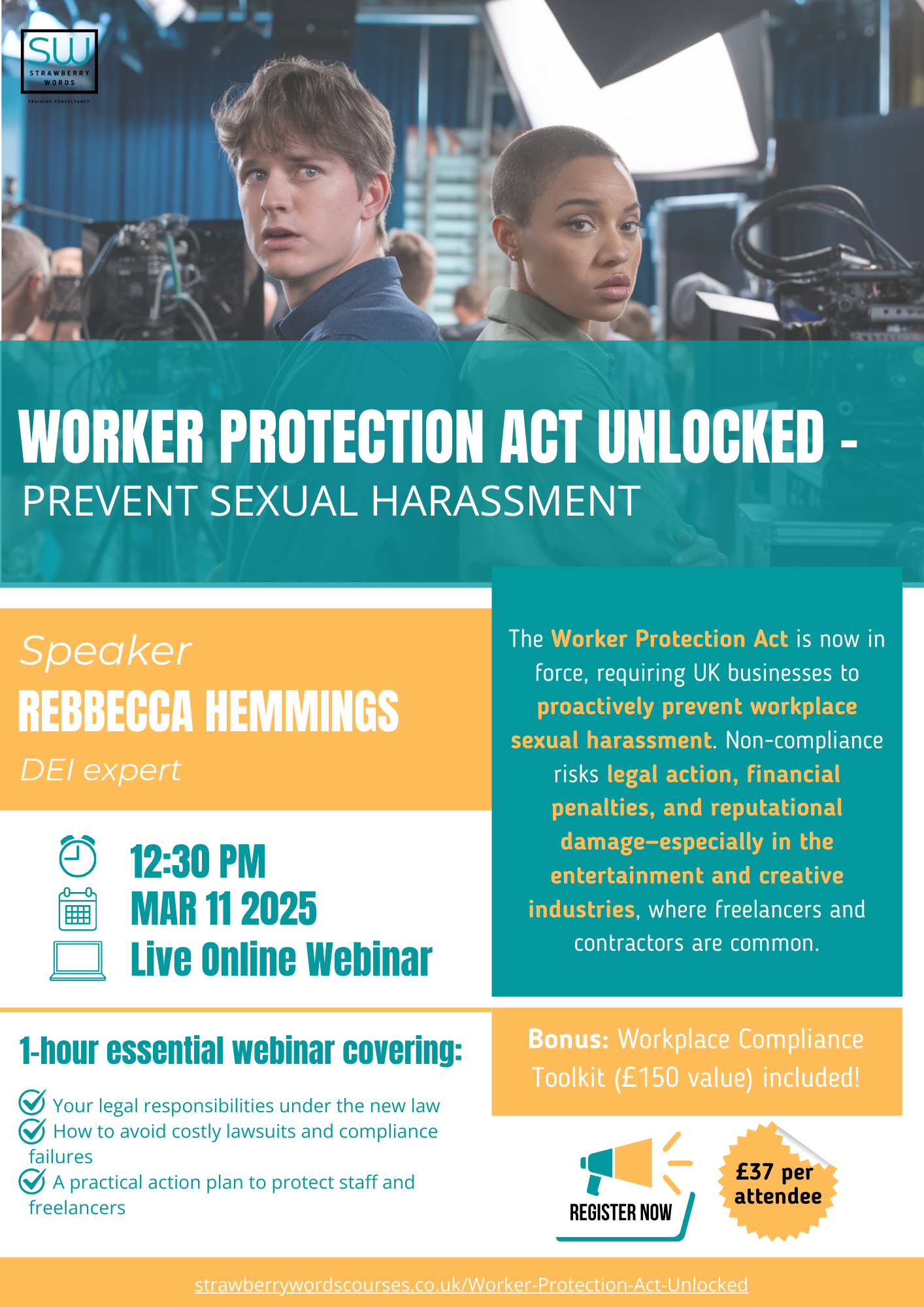Deflect, Deny, Defend? How to Tackle Resistance in Harassment Discussions
Feb 25, 2025
When it comes to addressing workplace sexual harassment, having conversations is a crucial step toward progress. However, these discussions often trigger defensive responses, what we call the “5 D’s of Resistance.” We discovered these whilst delivering antiracism training. They are common responses to people feeling fearful or anxious when participating in difficult conversations.
We have found that discussing these at the start of a session greatly helps in reducing defensiveness during the training. Recognising these reactions is key to encouraging people to speak up, reducing the likelihood of people shutting down and becoming overly protective and hostile.
The 5 D’s of Resistance
Deflecting - Shifting focus with comments like, “What about men, they face sexual harassment too?” diverts attention from the core issue, making it harder to address systemic problems.
Defending - Statements like, “I can’t be sexist, I’m a woman!” often aim to protect personal identity rather than engage with the topic.
Discrediting - Labelling concerns as overreactions, such as, “They’re just too emotional,” undermines victims and deters meaningful discussion.
Denying - Responses like, “That doesn’t happen here,” dismiss the reality of workplace harassment and ignore its potential impact.
Downplaying - Comments such as, “It’s just a joke,” minimise harmful behaviour and perpetuate a toxic culture.
These responses are human, often stemming from discomfort or fear of blame. We can all react using any of the 5D’s when we are scared or feel like we’re being labelled as a bad person. Recognising them allows employers and teams to respond constructively, replacing defensiveness with openness and self-reflection.
How to Overcome the 5 D’s
• Lead with empathy - Approach conversations with an understanding that defensiveness is often a reaction to feeling accused or uncomfortable.
• Encourage self-reflection - Ask team members to consider why they feel defensive and explore these feelings without judgement.
• Set the tone for dialogue - Establish a culture where discussing harassment is safe, supportive, and focused on learning and improvement.
• Encourage cultural humility - We love cultural humility as a background to all DEI work (we’ll write more about this in future newsletters).
• Provide education and training - Equip employees with the tools to understand and challenge unconscious biases (we can help you with this. See our courses here.
We talk about difficult topics every day with a wide range of organisations and their staff. Using the 5D’s has been very helpful in reducing high levels of defensiveness and resistance. As with all these newsletters, we highly recommend you share them as part of your organisation’s commitment to preventing sexual harassment, racism and discrimination.
Bye for now
Rebbecca Hemmings
Director
www.strawberrywords.co.uk
PS: The Law Has Changed – Is Your Organisation Compliant? Join us on 11th March 2025 to ensure your policies align with the new Sexual Harassment legislation. Register now.

Talking about racism can seem difficult and uncomfortable. This CPD accredited course provides a foundational education on racism to help to increase racial literacy which includes building confidence to speak about and deal with issues concerning race. It provides a language through which meaningful conversation can take place (particularly in the workplace).
Stay connected with news and updates!
Join our mailing list to receive the latest news and updates from our team.
Don't worry, your information will not be shared.
We hate SPAM. We will never sell your information, for any reason.
